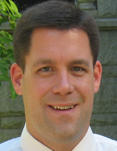The Harvard Family Research Project separated from the Harvard Graduate School of Education to become the Global Family Research Project as of January 1, 2017. It is no longer affiliated with Harvard University.

|
April 24, 2014 Transforming Pittsburgh Into Kidsburgh!Gregg Behr
|
FINE Newsletter, Volume VI, Issue 2
Issue Topic: Making it Real—Connected Learning in the Digital Age
Perspectives
Gregg Behr illustrates how Pittsburgh gamers, robotics engineers, and designers work alongside educators in and out of school and use digital tools to inspire children’s learning.
In Pittsburgh there is an educational revolution of sorts taking place. Drawing inspiration from hometown pioneers like Fred Rogers, a new generation of pioneers—gamers, robotics engineers, designers—are working alongside educators in and out of school and using digital tools to inspire children to engage in the kind of curious, creative, critical thinking we know they will need to navigate their futures.
But that means today’s parents have to be pioneers, too. As they raise the so-called “touch-screen generation,” parents today are grappling with questions that go way beyond how many minutes of screen time are appropriate for their young learners. Parents are thinking through questions of privacy, access, quality, information literacy, and the impact of digital tools on family life—often even before their children enter school. As our children’s first teachers, parents have a crucial role to play in supporting 21st-century learning. And in Pittsburgh, we are doing all we can to support them.
We have taken a unique approach to working together to help prepare all of our region’s children by supporting anywhere, anytime learning. With leadership from our Kids + Creativity Network, we have created a deliberate network of citywide partnerships that knit together the expertise of hundreds of PreK–12 educators, artists, technologists, and families in a regionwide effort to remake learning. Our partners include schools, museums, libraries, afterschool programs, community centers, higher-education institutions, the private sector, and the philanthropic community. Many of these groups are working with families directly to provide relevant and useful guidance.
The Fred Rogers Center for Early Learning and Children’s Media at Saint Vincent College has taken an important leadership role in our region and nationally. The center is providing parents and educators with guidance to support learning through digital media in ways that put healthy child development front and center. The Early Learning Environment™ (Ele) is a Web-based support system that offers early literacy and digital-media literacy training for teachers, home-based child care providers, and families of children from birth to age 5. The center staff believe that media support learning in early childhood—when they are used intentionally and appropriately. The center is working closely with the National Association for the Education of Young Children to provide ongoing guidance to families and educators in this ever-changing technology landscape.
Other examples from our region include My Story Maker, an online, game-based approach to literacy and storytelling for younger kids that is based at the Carnegie Library. All of these resources make it easier for parents to promote 21st-century literacy at home. Another program, Message from Me, adapts existing technologies like email, digital cameras, and microphones to enhance parent–child communication about what happens during the school day. Our local public media affiliate, WQED, has also created an institute for parents to empower them with new knowledge, tools, and skills to successfully guide their children in the use of digital media and technology.
Feedback from parents and caregivers has been essential to the success of all of these projects. But what is exemplary about the work going on in the Pittsburgh area is our collective effort. Education in Pittsburgh is not left to classroom teachers alone; it is everyone’s responsibility. We have software developers working alongside early childhood educators, museum professionals partnering with Head Start teachers, and parents and librarians collaborating to create a regionwide ecosystem that supports digital, maker, and STEAM learning. We think it’s a recipe for success.
Gregg Behr is executive director of the Grable Foundation and manages a grantmaking portfolio advancing high-quality early childhood education, improved teaching and learning in public schools, and robust out-of-school time support. Professionally, as well as personally, Gregg is committed to improving the life prospects for every child in his hometown of Kidsburgh.
This resource is part of the April FINE Newsletter. The FINE Newsletter shares the newest and best family engagement research and resources from Harvard Family Research Project and other field leaders. To access the archives of past issues, please visit www.hfrp.org/FINENewsletter.
